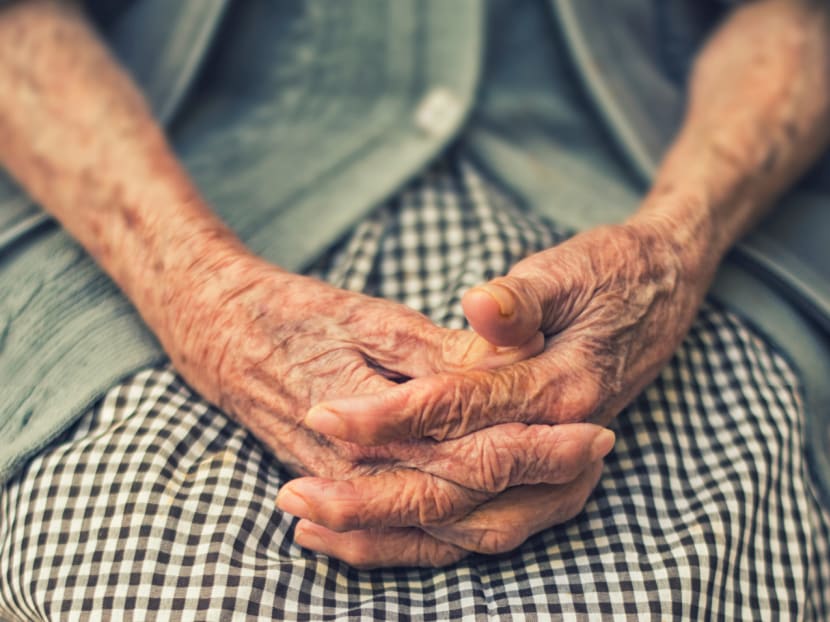Singaporeans more open to talking about death and care for the sick: SMU study
SINGAPORE — More Singaporeans are more comfortable discussing the issue of death today compared to five years ago, a study by the Singapore Management University (SMU) has shown.

A study by the Singapore Management University found that 53 per cent of Singaporeans said that they are more comfortable discussing end-of-life matters as well as their own death, higher than 36 per cent five years ago.
SINGAPORE — More Singaporeans are more comfortable discussing the issue of death today compared to five years ago, a study by the Singapore Management University (SMU) has shown.
The study also reported that more than half of the younger Singaporeans surveyed — between the ages of 21 and 50 — are now more aware and better informed of the purpose of palliative care in “relieving symptoms and improving the quality of life” of older patients.
Among this age group, those who fall between the ages of 41 and 50 are the most aware — with 66 per cent of them being better informed about end-of-life issues.
The study, which aims to better understand end-of-life communication and sentiments towards palliative care in Singapore, was led by Dr Yeo Su Lin, who is an assistant professor of communication management at SMU.
It surveyed 1,226 Singaporeans and permanent residents aged 21 years and above from different age groups and ethnicities and was conducted over a period of four months, from April to August this year.
MAKING PLANS FOR FUNERALS
One finding is that 53 per cent of Singaporeans said that they are more comfortable discussing end-of-life matters as well as their own death, a 17 percentage point increase from five years ago.
Funeral directors interviewed by TODAY tell of the same thing, saying they have seen an increase in the number of people — young and old — who have approached them to discuss end-of-life matters.
Mr Roland Tay, 73, founder of Direct Funeral Services, said that people have become more “open-minded” about speaking openly about death. Some older people have even stepped into his office along Lavender Street to talk about their concerns, such as what they should do as they reach the end of their life.
“They know that funerals are part of life, so they think that they should talk it out rather than not talk about it at all. It is very different from before when people would hardly talk about what happens when death comes,” he said.
Mr Daniel Wong, who runs Amazing Grace Funeral with his father, said that he has even encountered people who are open and make jokes about their future funeral arrangements.
“For example, one man was saying (to his friends), ‘Next time when it’s my turn, don’t trim my moustache away’. His friends would then reply, ‘No, we will make sure you shave’.”
Mr Wong believes the changes in the way funerals are conducted have also contributed to people’s perceptions of death as a “remorseful, sad state of affairs” to one that can also have a “dignified and meaningful process”.
He noted that many people truly have “burning questions” about end-of-life matters, but because of the taboo nature of the topic, they tend to shy away from talking about it because they do not want to offend others.
GREATER AWARENESS FROM ONLINE INTERACTION
In a media release on Thursday (Oct 3), Dr Yeo of SMU said that digital media has helped to “open up end-of-life conversations” for those between the ages of 21 and 50 as they are likely to be “active digital users”.
Responding to TODAY’s questions over email, she added that digital spaces provide individuals with the opportunity to “share freely with social groups and online communities” and this “naturally generates awareness” on end-of-life matters such as palliative care.
“By doing so, other individuals in the social groups may be curious to want to seek more information (and) will tend to be better informed of health issues, comprehend what is going to happen, how it can happen and make plans for the future,” she said.
Agreeing, Mr Elson Chong, 34, founder of Serenity Casket and Funerals, said that it has become easier for tech-savvy Singaporeans to be more exposed to end-of-life matters.
“People can search for the information they need online. The media also publishes a lot of after-life matters, like how to cope with death and bereavement. It is very much different compared to the past when people can only depend on the newspaper and word-of-mouth,” he said.
As for why those in the 41 to 50 age group are the most informed on end-of-life matters, Dr Yeo said that in her opinion, these individuals are likely to be at the stage of life where their family members “may be dealing with deteriorating health issues” and would “inevitably find themselves” having to confront the matter.
WHAT CAREGIVERS SAY
When it comes to bracing for death, the survey also found that 77 per cent of Singaporeans want to be cared for at home.
This is not surprising, as previous studies have shown similar results, Dr Yeo said.
However, she noted that the study does not take into account the views of caregivers, whose preferences are “often influenced by multiple factors”, such as how much resources are available as well as the nature of the relationship between the caregiver and patient.
A few caregivers told TODAY that they would also like to look after ailing family members at home.
As for what can be done to ease the difficulties in caring for their aging parents, they would like to see more discussions about the subject as well.
One of them, who wanted to be known only as Ms Leong, 47, said that the trips to medical appointments and the waiting time can be trying for her mother, 79, who is wheelchair-bound.
Ms Leong, who is an administrative assistant at a bank, said: “It is very tedious for the caregiver and (the patient) to go to the hospital and wait for long hours. My mother would have to sit down in a chair for three to four hours, which is a headache for her.”
What could help her is if doctors or healthcare workers could do house visits for routine medical checkups and procedures such as taking blood tests, she said.
For Ms Jasmine Chua, 48, she agreed that caring for her parents in the comfort of her own home is a less stressful environment for both the caregiver and the parents.
Ms Chua’s 84-year-old mother has had dementia for close to 16 years, and it is important for her mother to feel secure and comfortable, so seeing familiar faces at home helps.
She added that caregivers are often unsure of what to do when their family members receive a chronic diagnosis, because they are not trained to handle specialised medical conditions such as dementia.
Agreeing, Ms Leong said that an open dialogue among caregivers on the challenges they face can be a helpful source of support.
“I would want to understand what problems other families encounter. Different elder patients have different illnesses and temperaments. We may not face (the same problems) now, but we could in the future,” she said.
“Having the opportunity to discuss these will allow us to learn from each other. Maybe I have been doing something wrong and I didn’t know? That is why I think it is better to talk about it,” she added.








